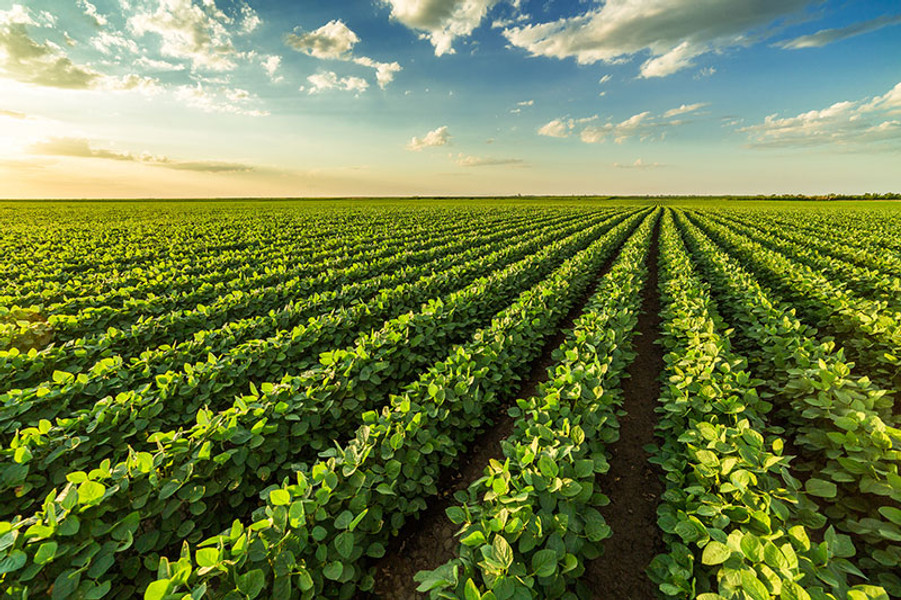Genetically Modified Crops: A New Biosecurity Threat?
Posted by Fresh Harvest Market on 11th Jul 2024
China Infiltrating U.S. with 'Genetically Modified' Crop: Lawmakers Warn
In a startling development, U.S. lawmakers are raising alarms about a potential biosecurity threat from China. Reports suggest that the Chinese Communist Party (CCP) is allegedly infiltrating the United States with genetically modified crops. This issue is not only a matter of national security but also a significant concern for the agricultural sector and public health.
Historical Context
This is not the first time biosecurity threats have made headlines. Historically, nations have used various means to gain an advantage, and biological manipulation is one of the latest tools in this arena. The evolution of genetic modification has brought many benefits, such as increased crop yields and resistance to pests. However, it also opens up possibilities for misuse.
The Issue at Hand
Lawmakers are particularly concerned about genetically modified soybeans. Soybeans are a crucial crop for the U.S., used in everything from animal feed to biofuels. The infiltration of genetically modified soybeans could have far-reaching consequences. It could disrupt the agricultural economy, endanger the environment, and pose health risks to consumers.
Types of Crops Involved
While soybeans are at the forefront of this issue, other crops are also under scrutiny. Corn, wheat, and rice are some of the other genetically modified crops that could be targeted. These crops are staples in the American diet and play a vital role in the global food supply chain. The potential infiltration of these crops could have a domino effect, impacting not just the U.S. but also international markets.
Genetically Modified Soybeans
Soybeans are genetically modified to enhance various traits such as herbicide resistance and pest resistance. These modifications are intended to increase crop yields and reduce reliance on chemical pesticides. However, the introduction of genetically modified soybeans by foreign entities raises questions about the control and intent behind these modifications. Are these crops engineered to perform poorly in American soil? Are they designed to carry harmful traits that could spread to native plants?
Genetically Modified Corn
Corn is another major crop that has seen extensive genetic modification. Modified corn can be resistant to herbicides and pests, similar to soybeans. The concern here is similar – the potential for these modifications to be weaponized. If genetically modified corn were introduced with harmful traits, it could devastate U.S. corn production and ripple through the food supply chain.
Genetically Modified Wheat
Wheat, a staple crop, has also been a target for genetic modification. Modified wheat can offer improved yields and resistance to environmental stresses. However, the infiltration of genetically modified wheat by a foreign power poses a severe threat to food security. The American wheat industry is a cornerstone of the global food market, and any disruption could have widespread consequences.
Genetically Modified Rice
Rice is another crop under the microscope. As a primary food source for a large portion of the world’s population, genetically modified rice could impact food security on a global scale. The introduction of harmful traits in rice could lead to shortages and increased prices, affecting millions of people.
The Biosecurity Threat
The potential infiltration of these genetically modified crops raises serious biosecurity concerns. Biosecurity involves protecting the economy, environment, and health from the negative impacts of pests, diseases, and other biological threats. The introduction of genetically modified crops with harmful traits could undermine these protections and cause significant harm.
Economic Implications
The economic implications of this issue are profound. The U.S. agricultural sector is a major component of the economy, supporting millions of jobs and contributing to the GDP. Any disruption in crop production due to genetically modified infiltrations could lead to economic instability. Farmers could face crop failures, leading to financial losses and increased reliance on government support.
Environmental Impact
The environmental impact of genetically modified crop infiltration cannot be overstated. These crops could potentially crossbreed with native plants, spreading harmful traits and disrupting ecosystems. The use of herbicide-resistant crops, for example, could lead to increased herbicide use, harming beneficial insects and other wildlife.
Health Risks
The health risks associated with genetically modified crops are another major concern. While genetically modified crops are generally considered safe, the introduction of crops with unknown or harmful traits could pose risks to human health. Allergies, toxicity, and other health issues could arise from consuming these crops.
Response from Lawmakers
U.S. lawmakers are responding to this threat with increased vigilance and calls for stricter regulations. There is a push for more robust biosecurity measures to prevent the infiltration of genetically modified crops. This includes stricter import controls, increased funding for agricultural research, and collaboration with international partners to address the threat.
Public Awareness
Raising public awareness is crucial in addressing this issue. The public needs to be informed about the potential risks and the steps being taken to mitigate them. Transparency from the government and collaboration with agricultural organizations can help build trust and ensure that the public is prepared for any potential disruptions.
Conclusion
The potential infiltration of the U.S. with genetically modified crops by the CCP is a serious issue that requires immediate attention. The stakes are high, with implications for national security, the economy, the environment, and public health. By taking proactive measures and raising awareness, the U.S. can better protect its agricultural sector and ensure the safety and security of its food supply.
FAQs
- What crops are primarily involved in this issue?
- The primary crops involved are soybeans, corn, wheat, and rice.
- Why is the infiltration of genetically modified crops a concern?
- It poses risks to the economy, environment, and public health, and raises national security concerns.
- What are the economic implications of this threat?
- Disruption in crop production could lead to financial losses for farmers, economic instability, and increased reliance on government support.
- How can genetically modified crops impact the environment?
- They could crossbreed with native plants, spreading harmful traits and disrupting ecosystems.
- What steps are being taken to address this threat?
- Stricter import controls, increased funding for agricultural research, and international collaboration are some of the measures being taken.

